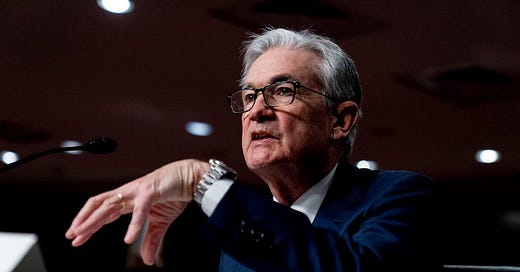S&P 500. The stock market index everyone is concerned about. Last Friday, the barometer of the US economy touched 20% down from its high for the year - it has entered the much-feared bear market territory.
The high for the year in stocks was on Jan 4th. Everything was rosy back then. The household net was at record highs. Consumers and businesses were flush with cash. The job market was tight and residential valuations were at record highs. With ultra-low interest, the stage was set for high consumption too. Unfortunately, that was the top.
Then we had a series of problems that most of us did not foresee. First was the Russian war. Then came more supply chain issues. Oil prices going up. Other commodities were going up too. Chinese lockdown. Hot inflation. None of which were equity positive.
But none of those were the molten core of all problems. What worsened everything was the Fed’s sloppy reaction to inflation. The Fed failed the public completely. At a time when they could have executed a campaign to get inflation under control by increasing interest rates and not creating so much confusion, they idled away taking things for granted. The Fed employs more than a thousand PhDs plus the Fed Chairman Powell who is not a PhD. Their job was to skate where the puck is going to be, not where it has been (to use an ice hockey analogy). They should have even had an emergency meeting to raise the rates substantially like the way they reacted to dropping the rates on a weekend when the pandemic hit the markets in March 2020. But then they never own up to their mistakes. They are always firefighters.
If they had anticipated this and acted accordingly, the economy would have been still buzzing and the stock markets would have been strong too. Instead, they have opted on attacking demand. That is the easiest way out. Crush the stock market. This is what Chairman Powell said clearly back in March, “We are trying to better align demand with supply” meaning bring demand down.
They will achieve this without taking any big policy decisions. Ben Bernanke the former Fed Chairman gave a talk at the Brooking institution on Friday and he said: “Monetary policy is 98% talk and 2% action”. Their talk at the moment is to deflate the stock prices, and they are pretty good at it.
If you received value from this post, and you’d like to send some back, or if you’d like to signal to me to continue spending time on these types of explorations, feel free to buy me coffees (thank you!):
So, there we go. Thanks for reading Breezy Briefings. If you enjoyed this, I'd really appreciate it if you could take a second and tell a friend. Honestly. It makes such a big difference.
Forward this email. Recommend the newsletter. Share on Twitter, WhatsApp, Telegram, LinkedIn, Slack, wherever!
Join Breezy Briefings’ Official Telegram Channel: https://t.me/BreezyBriefings
Abraham George is a seasoned investment manager with more than 40 years of experience in trading & investment and multi-billion dollar portfolio management spanning diverse environments like banks (HSBC, ADCB), sovereign wealth fund (ADIA), a royal family office and a hedge fund. Currently, he is a co-founder of a new hedge fund where foreign citizens can invest in Indian growth stocks like Tanla operating in hyper-growth markets like CPaaS.



